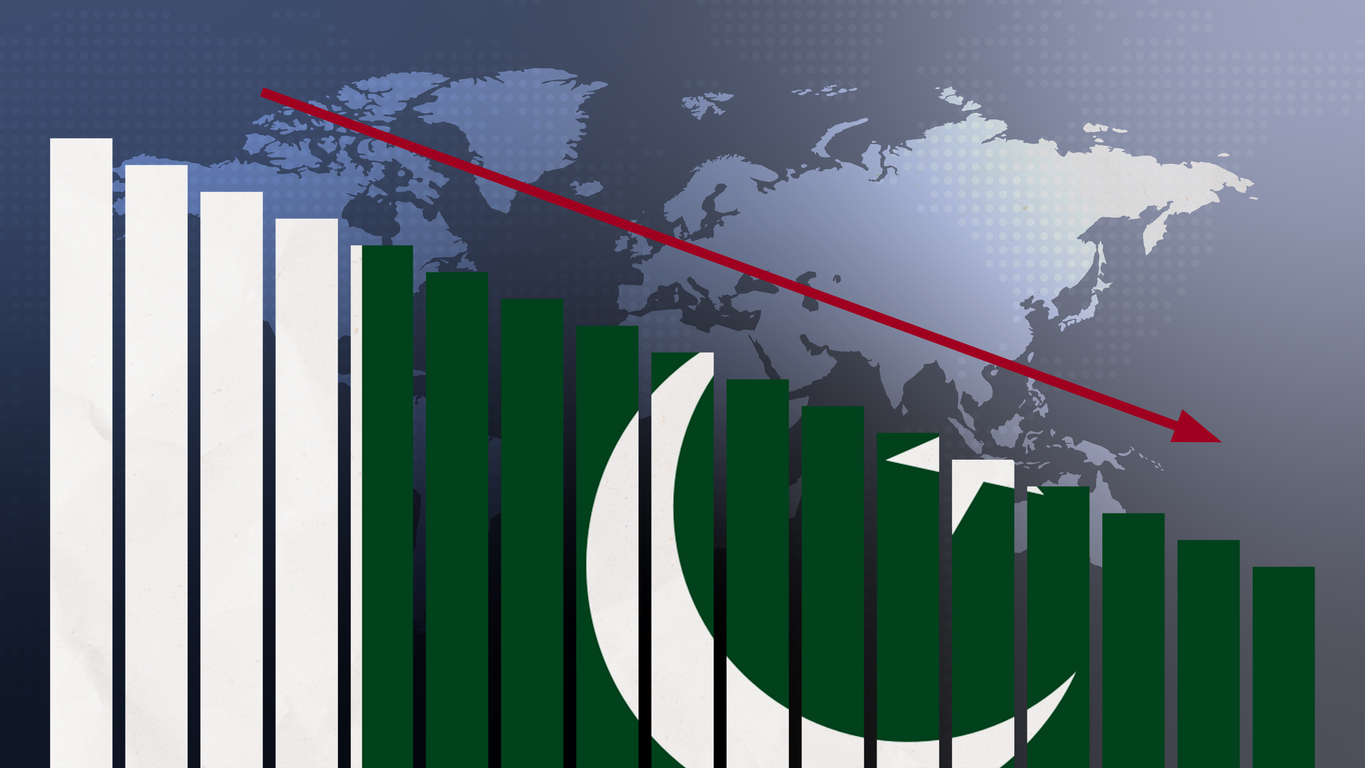
Pakistan has unveiled its annual budget for fiscal year 2024-25 with the likely budget deficit of Rs 11 trillion, delineating the pathetic state of affair of the country: low productivity, balance of payment crisis, foreign debt and social unrest. The country is also plagued in corruption, the education budget is reducing, and national integration is on stake. Pakistan has yet to overcome the political polarization; and even worse, insurgency and terrorism are reaching to all times high.
In the political histories of the nations, rise and fall, integration and disintegration, growth and stagnation are the perennial truths and the constant realities. However, the nations which navigate through them with political wit and strategic prudence remain precedent for other nations. Singapore and China are two precedents and epitomes of progress from the ruins of wars, poverty and starvation to the zenith of human civilization. Pakistan can learn much from their journey.
Visionary leadership, to begin with, for the development of any nation is momentous. Lee Kuan Yew, the Singaporean premier, is said to be the one of the shrewd statesmen of the 20th century. Deng Xio Ping, on the similar lines, is called the father of modern China. They held their respective offices when their countries were racked in post-colonial challenges. Singapore had no standing army, had high population density, means for production were very low. China was in the dark shadow of Mao’s The Great Leap Forward and Cultural Revolution. Their respective visions of development and strategic foresights have made China the world 2nd largest economy and Singapore today is the richest country in Asia. Pakistan needs such leaders.
The maxim ‘the house divided against itself cannot stand’ was well gauged by Lee seeing the diverse and hostile ethnic population of the Singapore. Instead of exploiting their differences, he integrated them into housing schemes where houses were allotted based on ethnic quota. In other words, every housing scheme must have had a certain population of every ethnic group (Malay, Chinese, Hindus and Muslims). It was done to end the enclaves of each ethnicity. He also initiated cultural programs in schools, secularized the constitution and integrated the society as a whole. For development, Pakistan has to prioritize national integration. In doing so, addressing provincial grievances, making unbiased curriculum, initiating cultural programs are necessary.
Financial independence is foremost for Pakistan. Singapore and China or any other country cannot be affluent unless it establishes a resilient economy. Singapore did so by making effective the State-Owned Enterprises (SOEs), improved ease of doing business (EODB), removed bureaucratic red tapism and most importantly ceased corruption. China, under Deng, came up with Open Door Policy which allowed foreign countries to highly invest in China. Beijing established Special Economic Zones (EEZs) and welcomed foreign investment. Important is the fact that China established Township and Village Enterprises that significantly added in their national economy. Pakistan’s SOEs collective loss reached to $2.61 billion in fiscal year 2022, Pakistan ranks 108th position in EODB and transparency index of Pakistan is 133 out of 180 countries. FDI flows of Pakistan count 0.76 percent of its GDP which are far blow than its neighbors let alone the developed economy.
They prioritized education more than anything. Singapore allocated 22.5% of their budget to education. Freed the primary education, and made government schools of highest standard. More emphasis was placed on mathematics, technical and science subjects. Skill upgradation was declared utmost. In the specific sectors, through Skill Development Levy, it was made mandatory by law that employers should pay their employees to learn and upgrade their skills in technical schools. By the 1990s, it turned Singapore a part of global supply chains in sophisticated industries such as Biotech Engineering, Integrated Circuits, Aerospace, Petrochemicals and Pharmaceuticals.
On the other hand, China made compulsory the vocational education as part of China’s nine-year compulsory education program. Such education reforms prepared a ground for a more aware and skilled masses and gave a boast to industries. In the budget of fiscal year 2024-25, to the contrary, Pakistan’s total allocation on education reduced to 1.5 percent from 1.7% of GDP.
Lee accurately assessed the link of internal development with the geopolitical environment. Caged by hostile nations, Singapore felt the need of peaceful relations with its neighbors. He endeavored for the initiation of a regional multilateral body, later know as Association for South East Asian Nations (ASEAN), to counter the threats from neighbors and promote regional interconnectivity. Consequently, the ASEAN region developed as a whole and no geopolitical challenges confronted their development. Islamabad needs to understand that for national development, peaceful relations with contagious states is mandatory.
For ensuring good governance, Singapore pays very high salaries to government officials. Singaporean Prime Minister is the highest paid PM of the world. The logic of high pay is to curtail the incentives of corruption. Besides, the state announced Prevention of Corruption ACT (I960) through which Corrupt Practices Investigation Bureau, unlike Pakistan’s National Accountability Bureau (NAB), was given operational autonomy to avoid political interference in the institution.
Finally, Singapore considered cleanliness as the most mandatory aspect of human civilization. Lee introduced Keep Singapore Clean Campaign: he started heavy penalties on spitting in public, littering and smoking; chew gum was banned; Happy Toilet Program was launched to keep the public toilets clean.
Hence, Pakistan, like Singapore and China, has to prioritize three aspects: economic development to sustain population; domestic cohesion and integration for the success of long-term policies; and proactive and prudent foreign policy to manage regional and global threats and leverage the opportunities. Economy lies at the forefront. Pakistan has to generate sufficient revenue, establish a conducive business environment and removing trade barriers. Nation building is required: as Lee observed, “A nation is great not by its size alone. It is the will, the cohesion, the stamina, the discipline of its people and quality of their leaders which ensures it an honorable place in history.”
